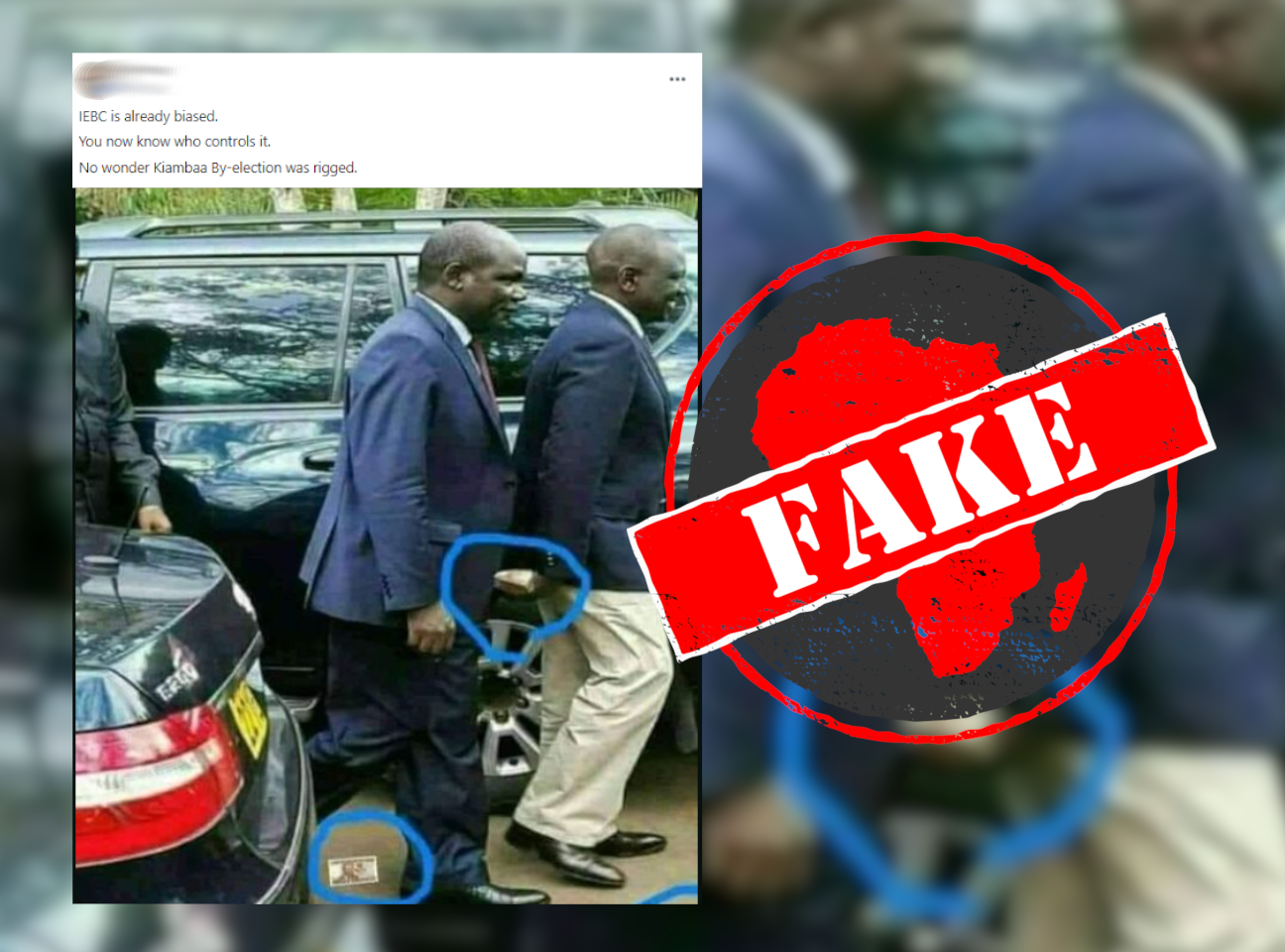An image that seems to show deputy president William Ruto handing a bundle of cash to Wafula Chebukati, chair of Kenya’s electoral commission (IEBC), was posted on Facebook on 21 July 2021.
“IEBC is already biased. You now know who controls it. No wonder Kiambaa By-election was rigged,” its caption reads.
The image was also posted on a Facebook page with more than 130,000 followers with the comment: “SO, HIVO NDIO KULIKUA.” From Kiswahili, this translates as: “So this is how it was”.
In July, Ruto’s new United Democratic Alliance party won its first parliamentary seat, beating a candidate from the ruling Jubilee Party. Chaos erupted after the votes were counted, with Jubilee supporters protesting the outcome.
But what does the image really show? We checked.

Photo from 2017
A Google reverse image search reveals that the original photo, first seen online on 3 October 2017, shows Ruto attending an IEBC meeting at the Bomas of Kenya.
A cropped version of the photo was published on the Star website and credited to Luke Awich, a political reporter.
Part of its caption reads: “IEBC chairman Wafula Chebukati with Deputy President William Ruto during their meeting at Bomas of Kenya in Nairobi.”
A further search located the full photo, on the Tuko website. In this version it’s clear that Ruto is not holding a bundle of cash.
The image posted on Facebook has been altered.
Republish our content for free
For publishers: what to do if your post is rated false
A fact-checker has rated your Facebook or Instagram post as “false”, “altered”, “partly false” or “missing context”. This could have serious consequences. What do you do?
Click on our guide for the steps you should follow.
Publishers guideAfrica Check teams up with Facebook
Africa Check is a partner in Meta's third-party fact-checking programme to help stop the spread of false information on social media.
The content we rate as “false” will be downgraded on Facebook and Instagram. This means fewer people will see it.
You can also help identify false information on Facebook. This guide explains how.


Add new comment